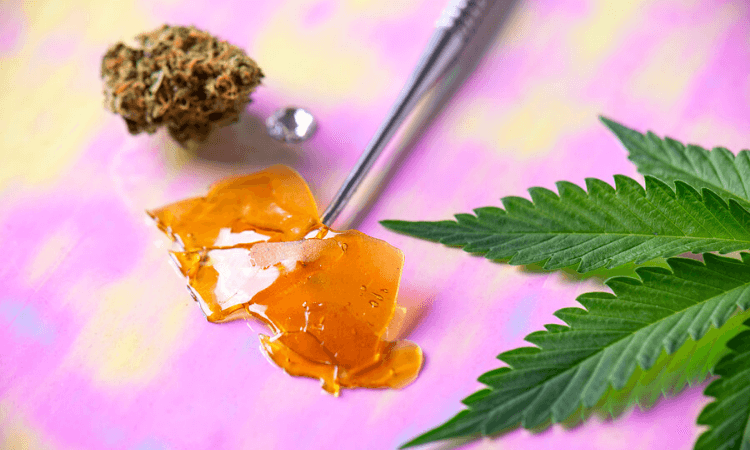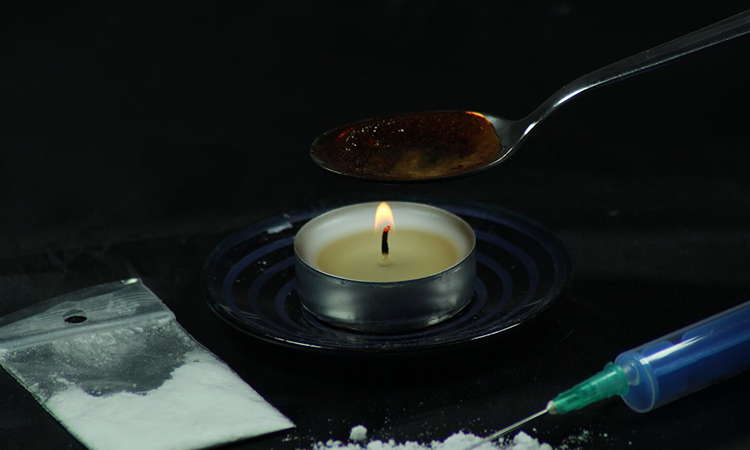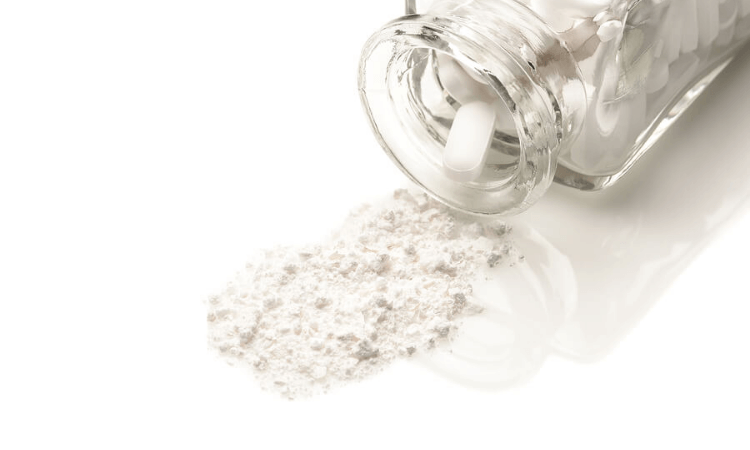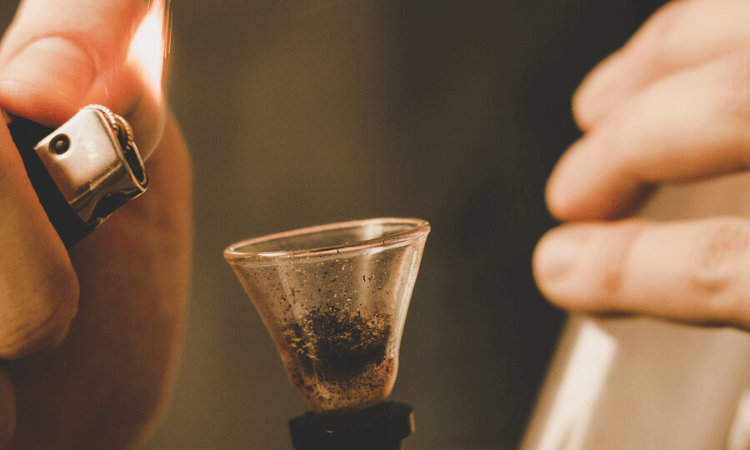-

What Are Downer Drugs?
Downer drugs are central nervous system (CNS) depressants that slow activity in the brain and body. These drugs work by increasing the production of the neurotransmitter GABA. This chemical messager functions to reduce the activity of the neurons to which it binds. This action results in effects such as relaxation and drowsiness and sometimes decreased…
-

Reverse Tolerance and Other Types of Tolerance
Reverse tolerance, also referred to as drug sensitization, is essentially the opposite of tolerance to drugs or alcohol. Tolerance develops when regular drinking or drug abuse induces changes in the brain’s structure and function, and metabolism adapts to the continuous presence of substances in the body.
-

What Is Dab Drug?
Dab drug is marijuana extract (primarily butane hash oil or BHO) that is ingested by smoking or vaping. “Dabbing” can be more dangerous than other types of marijuana use due to the potency of BHO.
-

What Does Fentanyl Look Like?
Fentanyl is an opioid and prescription painkiller that is available as a pill, powder, tablet, spray, or sublingual (under the tongue) film. Time-release formulas of fentanyl are found as gel patches or lollipops, and hospitals sometimes use injectable forms. Illicit street versions of fentanyl are usually in powder form.
-

Trauma Recovery and Addiction
In the United States, 61% of men and 51% of women report experiencing at least one traumatic event in their life. People who experience post-traumatic stress disorder (PTSD) and have been exposed to traumatic events are at a heightened risk of developing an addiction to drugs or alcohol.
-

Hiding Alcohol and Other Warning Signs of Alcoholism
It is not always easy to identify an alcohol problem in a loved one. People with addiction issues can become masters at concealing and denying the severity of their addictive behavior.
-

What Does Heroin Look Like?
Pure heroin looks like a fine, white powder, but is frequently found in various shades of gray, beige, pink, brown, and even black.
-

Flexeril and Alcohol
Flexeril (cyclobenzaprine) is a muscle relaxer that works by blocking pain sensations sent to the brain. Flexeril is used to treat musculoskeletal conditions, including pain, injury, or spasms. Using muscle relaxers such as Flexeril and alcohol together can induce profound sedation, impaired cognition and motor function, chemical dependence, and accidental death.
-

What’s Involved in Opium Addiction Treatment?
Because opium is relatively cheap, compared to other drugs, opiate addiction is a huge problem as it affects about 26.4 million to 36 million people.
-

Klonopin Withdrawal Symptoms
Klonopin withdrawal symptoms are the result of a dependence on the drug and caused by the body slowly becoming accustomed to its absence.
-

Dangers of Mixing Ativan and Alcohol
Ativan (lorazepam) is a prescription benzodiazepine and central nervous system (CNS) depressant intended for the treatment of anxiety and panic disorders. Alcohol is also a CNS depressant that, when abused, can cause profound intoxication and lethal effects.
-

Snorting Meth
What Is Alcohol Use Disorder? – Alcohol use disorder (AUD) is a clinical diagnosis that is characterized by excessive, problematic drinking.
-

How Long Does Crystal Meth Stay in Your System?
Crystal meth is the crystalline form of the illicit, synthetic drug methamphetamine.
-

What Is Music Therapy?
What Is Music Therapy? – Music therapy is a form of creative expression that dates back to the 1970s. It’s often used in addiction programs as an alternative treatment. Music therapy interventions are also employed in different clinical environments to improve the overall functioning and mental health of a patient.
-

The Dangers of Snorting Valium
If you’re considering snorting Valium (diazepam), keep in mind that there are multiple reasons why you should not. There are many possible adverse complications that you may incur to your brain and body. Also, snorting Valium increases the risk of overdose and encountering severe side effects because of the amount of Valium entering the central…
-

Abuse of Meth and Sex
Abuse of Meth and Sex – The use of drugs to party or feel elated, at first glance, can be very seductive. Unfortunately, the abuse of certain substances can rapidly lead to risky behavior, adverse consequences, and, ultimately, addiction.
-

Klonopin Overdose
Klonopin Overdose – Klonopin (clonazepam) is an anti-anxiety medication used to treat panic disorder and some seizure disorders.
-

Does Kratom Show up on a Drug Test?
Does Kratom Show up on a Drug Test? – Testing for kratom is uncommon, as the drug’s use is relatively new to the U.S. and is still legal in most states. The standard 5-panel drug test often used by employers will not detect kratom. These tests only check for the presence of opiates, amphetamines, cocaine,…
-

Recreational Marijuana Abuse
Recreational Marijuana Abuse – Marijuana, often referred to as pot or weed, is a dry, greenish mixture of stems, seeds, and flowers from the Cannabis sativa plant. Recreational marijuana abuse is very common and sometimes severe enough to warrant professional treatment.
-

How Long Does Marijuana Stay in Your Hair?
How Long Does Marijuana Stay in Your Hair? – THC (Tetrahydrocannabinol), the psychoactive chemical in marijuana, can stay in the body for days or weeks. Hair follicle tests are the most sensitive tests, as they can detect THC for up to 90 days after the last use.
-

Can You Overdose on Marijuana?
Can You Overdose on Marijuana? – A marijuana overdose can occur when a person experiences severe health problems after ingesting too much of the drug. Symptoms of overdose may include hallucinations, elevated heart rate, and intense paranoia. Those that are experiencing these severe problems might require immediate medical attention.
Most Insurance Accepted
We work with most major insurance carriers and offer a range of options to fit your lifestyle and financial means